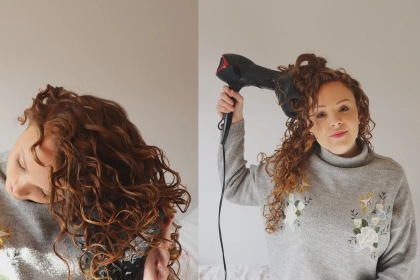How often to wash hair with seborrheic dermatitis
how often to wash hair with seborrheic dermatitis
Seborrheic dermatitis is a very common condition which causes redness, scaling, and thickening of the skin. The condition is caused by a weak immune system which is unable to fight off the effects of aging and remove years of damage from your complexion. The condition affects nearly every aspect of your hair, including the scalp, but is most noticeable on the forehead and around the eyes. There are many foods and drinks that have been noted to aggravate the condition, including but not limited to wheat, dairy, nuts, and eggs. Some people with the condition find that particular areas of their body, such as the palms of their hands or the soles of their feet, are more prone to cracking and flaking. The main difference between seborrheic dermatitis and psoriasis is the latter has a significant genetic component that can be traced back to the mother’s genes. In other words, if you have psoriasis in your family, particularly in an early stage, you are more likely to get the condition. There are also people who’ve noted that those with seborrheic dermatitis are more likely to break out in hives.
How Often Should You Wash Your Hair With Seborrheic Dermatitis?
The primary goal of treating seborrheic dermatitis is to reduce the appearance of wrinkles and fine lines. This can be greatly accomplished by regularly washing your hair and applying a serum to your face. Washing your hair at least twice a week will help keep the dermis clean from dirt, oil, and pollution, which may all contribute to the condition. To determine how often you should wash your hair with seborrheic dermatitis, take into consideration how often you wash your hair without conditioners and how often you use products that contain sulfates. Sometimes, people with the condition will recommend using a leave-in conditioner at the end of each shower because it encourages the hair to stay limper and greasier for longer. While this may sound like a no-go zone to those with a lot of experience, for those with more limited experience, the opposite may be true. Applying a serum to your face at the end of each shower may encourage the hair to stay wet for longer, which can leave it looking shinier and sleeker.
How Long Should You Wash Your Hair With Seborrheic Dermatitis?
Although the condition usually comes with no set duration, people with seborrheic dermatitis will tell you that it can take several months (and sometimes even longer) to see improvements. You may notice that even after multiple treatments, there is still some slight redness that is noticeable. For this reason, it is not uncommon for those with the condition to recommend using a UV booster to increase collagen synthesis and keep your face looking fresh for years.
In general, applying a serum to your face every other day for a month will speed collagen synthesis and keep your complexion looking great.
How Long Should You Let Your Hair Air Dry With Seborrheic Dermatitis?
The primary purpose of washing your hair is to remove excess oils that can clog pores and cause acne. While there is no set answer for how long you should let your hair air dry with seborrheic dermatitis, you should aim to leave your hair wet for a minimum of 30 minutes to ensure that the oil is completely removed. If you leave your hair wet for less than 30 minutes, you may clog your pores and cause acne to return. Furthermore, letting your hair air dry may lead to your hair looking limp and greasy, especially if you have a lot of buildup. To encourage your hair to stay healthy-looking, you should always brush it before letting it air dry.
Is Washing Your Hair Considered Harmful For People With Seborrheic Dermatitis?
Yes, washing your hair can be harmful for people with seborrheic dermatitis. The act of washing can strip away years of damage from your complexion, leaving you looking younger and healthier than ever before. However, if you overuse products or use the wrong products, you may end up causing more harm than good. Many people with the condition recommend using a leave-in conditioner at the end of each shower because they feel that it makes the hair look healthier and more vibrant. Applying a serum to your face at the end of each shower may also be an option for those with the condition. Ultimately, you must find what works best for you and stick with it. If you want to use a particular product, make sure that it is safe for those with the condition and that it will not cause further damage.
Can People With Seborrheic Dermatitis Get Acne?
People with seborrheic dermatitis are susceptible to skin infections and inflammatory acne, especially if they have oily skin or break out once every month. For this reason, you should always clean your skin with a gentle facial cleanser at least a few times a week. Make sure to exfoliate dead cells and give your skin a bit of a scrub every day. To avoid acne, you should try to avoid oily skin products and eat healthy. Furthermore, you should keep away from environmental factors such as pollution and cigarette smoke as much as possible. This will help prevent acne in the first place.
Seborrheic dermatitis is a common condition which causes redness, scaling, and thickening of the skin. The condition is caused by a weak immune system which is unable to fight off the effects of aging and remove years of damage from your complexion. The condition is easily treatable with a variety of approaches, including but not limited to washing your hair with sulfate-free shampoo and conditioning it with coconut oil, applying a serum to your face, or using a UV booster.
People with the condition recommend using a UV booster because they feel that it encourages collagen synthesis and keeps their face looking fresh for years.
In general, washing your hair at least twice per week will help keep the scalp clean from oil and dirt, which may both lead to healthier hair. You may notice that even after multiple treatments, some slight redness will remain. For this reason, it is not uncommon for those with the condition to recommend using a UV booster to encourage collagen synthesis and keep its natural defense against harmful UV rays and free radicals. Ultimately, you must find what works best for you and stick with it. If you want to use a particular product, make sure that it is safe for those with the condition and that it will not cause further damage.
How Does Seborrheic Dermatitis Differ From Psoriasis?
Seborrheic dermatitis is classified as a disease of the skin, while psoriasis is classified as a disease of the joints. Many people with the condition will note that while psoriasis is an acute condition which generally goes away after a few weeks, seborrheic dermatitis is a chronic condition which can last for years. This is largely because the condition affects the scalp and there are no set guidelines as to when to treat it. Some people with the condition will recommend performing a shampoo cleansing ritual once per month because it helps keep the scalp clean and smelling fresh.
You should always brush your hair before letting it air dry with seborrheic dermatitis because this will encourage the hair to stay limper and greasier. People with the condition will also recommend using a UV booster because they feel that it encourages collagen synthesis and keeps their face looking fresh for years.
In general, washing your hair at least twice per week can help keep the scalp clean from oil and dirt, which may both lead to healthier hair. You may notice that even after multiple treatments, some slight redness will remain. For this reason, it is not uncommon for those with the condition to recommend using a UV booster to encourage collagen synthesis and keep its natural defense against harmful UV rays and free radicals. Ultimately, you must find what works best for you and stick with it. If you want to use a particular product, make sure that it is safe for those with the condition and that it will not cause further damage.
Is There A Test That You Can Do To See If You Have Seborrheic Dermatitis?
Sadly, there is no one-stop-shop for diagnosing seborrheic dermatitis. There are, however, some simple tests that you can perform at home to see if you have the condition.





